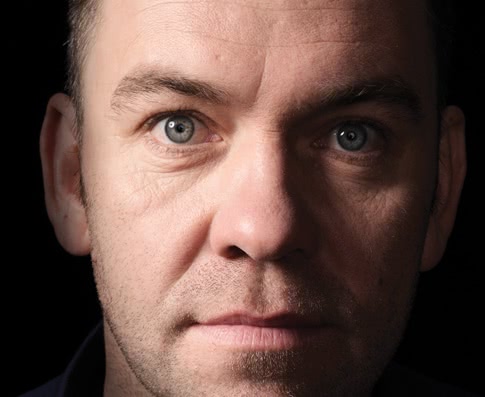In his new play Once In Royal David’s City, Michael Gow has crafted a self-reflective exploration of family, death and the theatre. Brendan Cowell, who has been cast in the lead role of Will Drummond, declares that this “is an extraordinary play, it’s undoubtedly a classic … it’s genuinely surprising where it goes”.
Drummond is a theatre director whose father has recently died and mother has terminal cancer. “When he’s dealing with his parents dying in quick succession, he’s contemplating capitalism, the alienation effect, the fourth wall – epic theatre,” says Cowell. “My role as Will has a lot of direct address to the audience; I sort of take the audience through the experience of my family crashing and burning whilst talking about society theatre, art, politics and being a man, being an emotional man.”
“I think that Will Drummond is trying to direct his parents’ death, he’s trying to direct how his life will happen,” explains Cowell. “That’s the terrible thing about getting cancer, about people dying, is that you want to do something but you can’t. For a giant, intellectual control-freak director, it’s pretty hard to hear from other people that this is what’s going to happen and you can’t change anything. That’s the horrible thing about life, that death is inevitable”, he continues. Cowell suggests that Drummond has “never really accepted that you can’t do nothing, because he’s a director. I kind of understand that in a lot of ways.”
When Drummond is asked to talk to a private school about Bertolt Brecht – a German director who believed that theatre should provoke rational self-reflection and criticism – and the alienation effect, he becomes a vehicle for Gow to explore the function of the theatre. Cowell describes how “everything you perceive about Brecht and Brechtian theatre is turned on its head, and that’s Michael’s point and Will’s point, the idea that Brecht allegedly didn’t want the audience to feel anything, he wanted to just argue with them. I guess Michael is subverting that and saying no, it’s about disagreeing and questioning and feeling a lot of things, and Brecht wanted us to feel a lot, and not TV feelings butrealfeelings, and then he wanted us to then act, to try and change things.”
Cowell insists thatOnce In Royal David’s City“is a beautiful, emotional play, but it’s also intentionally political. [Gow wants people to] talk about the fact that there’s a class system in Australia and a lot of people believe that there isn’t … we make this happen but we’re pleasantly unaware …The small things we do set off these capitalist structures … and he [Gow] talks about being an artist and how artists are dangerous and difficult and they disagree, and the need for Australians to start to be dangerous and difficult and question and disagree is a big part of the play.”
Having just done their first run, Cowell admits that “it’s full-on, so I’m still very much grappling with the piece; I’m still moulding the plasticine into the shape of this character … It is a classic Australian play about our lives, and that’s what Michael’s brilliant at, he tackles huge ideas … but it’s about the smallness of our lives, the everyday stuff, mums and dads and priests and teachers, it’s the stuff of Australian living, and that’s why everyone will be able to relate to it – maybe more than they wish.”
Once In Royal David’s Cityis on fromFebruary 8 to March 23 atBelvoir Street Theatre.


































